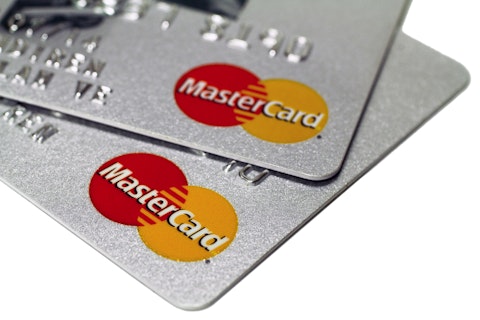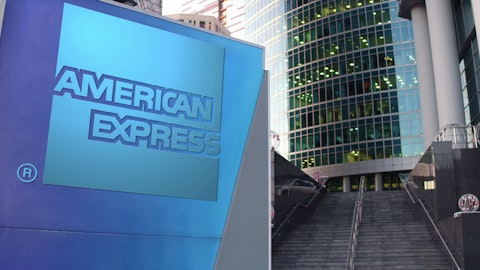In this piece, we will take a look at the ten best digital payments stocks to buy now.
The boom of the internet coupled with the near ubiquity of smartphones has changed the way in which most people interact with the world. Before the current technological era, users had to visit retail locations of payment providers such as Western Union or have access to bank accounts to transfer money across borders and over long distances locally.
Now, a plethora of payment service providers enable their customers to transfer money through their smartphones or the Internet. Companies like Visa and Mastercard are also called payment gateways because they operate networks that enable bank accounts, retailers, and consumers to send money to each other. On the flip side, Paypal, its service Venmo, and Jack Dorsey’s Block, Inc. (NYSE:SQ) are more pure play payments stocks since they enable virtually anyone with a phone that can access the service to send money.
The fact that they move money means that digital payments stocks move in tune with the economy. If the economy is robust and money is changing hands, then these firms see higher volumes. This allows them to earn more money through fees and commissions. To track digital payments stock index performance, we can look at the Nasdaq CTA Global Digital Payments Index. Between February 2022 and October 2023, when investors were worried about inflation and the impact of high interest rates on the economy, this index lost nearly 38%. However, since October, it is up by 46%. The American economy has surprised investors and policymakers over the past two quarters, and the potential for digital payments stocks to benefit from artificial intelligence and improve customer services does not appear to be lost on investors either.
In fact, artificial intelligence has already started to make inroads into digital payments. One such initiative is underway at Mastercard, which made an important announcement recently. A Mastercard customer’s card number is one of the most sensitive pieces of information in their bio-metric profile, and access to this information carries the risk of significant losses via fraudulent payments. The company now intends to leverage artificial intelligence to enhance the security of compromised retailer networks and merchant point of sale (POS) systems.
Through this service, Mastercard hopes to catch compromised cards before their data is used nefariously. It also hopes to improve the detection rate of merchants at risk from fraudsters by 300%. Mastercard’s announcement came just days after Visa introduced one of the biggest upgrades to US payment cards since chip based cards were introduced. This will allow users to consolidate their different bank cards under one umbrella and enable them to automatically categorize payments processing through a debit or a credit card depending on the value of the transaction.
Speaking of Visa and Mastercard, the two are at the center of important legislative proposals in the UK. The British Payments Systems Regulator is suggesting new rules on how the two share information with regulators and decide on their merchant fee increases. Businesses pay processing and other fees to the two every time a transaction is made through their network, and while British businesses have decried the high fees, Visa and Mastercard have defended their actions by pointing towards the value their networks provider.
The changes in the UK come after a historic settlement that forced the two companies to reduce their fees in the US. In fact, regulators on this side of the pond also issued a new rule that now recognizes popular new companies called buy now, pay later (BNPL) firms as credit card providers. This means that firms like Block, PayPal, and Affirm Holdings, Inc. (NASDAQ:AFRM) have to now adhere to the same rules as credit card providers when it comes to disputes and refunds. Naturally, this increases business costs. Consequently, since the new US digital payments rules were announced, PayPal has lost 3.41% on the stock market, while Affirm and Block have shed close to 5% each, respectively.
These trends show that the digital payments industry is constantly on its toes for changes ushered in by new technologies and regulatory changes. The fact that internet use is only expected to grow means that these firms can experience rapid user growth as well. This opens them up to new avenues to improve their services, and it also increases the stakes for their operations. If you’re interested in learning more about consumer spending and its future, then you can check out 20 Countries with the Highest Consumer Spending in the World.

Bornfree / Shutterstock.com
Our Methodology
To make our list of the best digital payments stocks, we ranked the holdings of the Amplify Mobile Payments ETF by the number of hedge funds that had bought the shares in Q1 2024. The Amplify Mobile Payments ETF is an exchange traded fund that tracks the Nasdaq CTA Global Digital Payments Index.
Moreover, for each of these stocks, we looked at how many hedge funds from our database held shares according to the last round of 13F filings. Hedge funds’ top 10 consensus stock picks outperformed the S&P 500 Index by more than 140 percentage points over the last 10 years (see the details here). That’s why we pay very close attention to this underlooked indicator.
10. Coinbase Global, Inc. (NASDAQ:COIN)
Number of Hedge Fund Investors In Q1 2024: 48
One of the most well known cryptocurrency exchanges in the world, Coinbase Global, Inc. (NASDAQ:COIN) is at the center of 2024’s Bitcoin boom. After dropping by 73% between November 2021 and 2023, the shares are up by 42% year to date due to growing Bitcoin regulatory approval. Coinbase is positioned to benefit from being one of the leading and most compliant cryptocurrency exchanges in the U.S. With regulatory scrutiny intensifying in the crypto space, particularly following high-profile collapses of other exchanges, Coinbase could emerge as a safer and more trusted platform, thereby capturing a larger market share.
During this year’s first quarter, 48 out of the 919 hedge funds part of Insider Monkey’s database had bought a stake in Coinbase Global, Inc. (NASDAQ:COIN). Catherine D. Wood’s ARK Investment Management owned the biggest stake that was worth $1.1 billion.
9. Toast, Inc. (NYSE:TOST)
Number of Hedge Fund Investors In Q1 2024: 50
Toast, Inc. (NYSE:TOST) is a Boston based specialized digital payments company. It offers POS systems and other products to the restaurant industry. The average of 21 annual analyst share price targets for Toast, Inc. (NYSE:TOST) is $27.46, and its shares are rated Buy on average. Baird cut the share rating to Neutral from Outperform and kept the share price target at $28 in May 2024.
By March 2024 end, 50 out of the 919 hedge funds covered by Insider Monkey’s research had held stakes in Toast, Inc. (NYSE:TOST). One of the biggest stakes was held by Henry Ellenbogen’s Durable Capital Partners. It was worth $397 million and came via 15.9 million shares.
8. Global Payments Inc. (NYSE:GPN)
Number of Hedge Fund Investors In Q1 2024: 52
Global Payments Inc. (NYSE:GPN) is a business payments platform provider that caters to the needs of retailers and merchants. The firm’s financial results for the first quarter saw it report $2.42 billion in revenue and $2.59 in adjusted EPS. The revenue marked a 6% annual growth and the EPS beat analyst estimates.
As Q1 2024 ended, 52 out of the 919 hedge funds profiled by Insider Monkey were Global Payments Inc. (NYSE:GPN)’s stakeholders. One hedge fund with a sizeable stake is William B. Gray’s Orbis Investment Management as it holds $757 million worth of shares.





